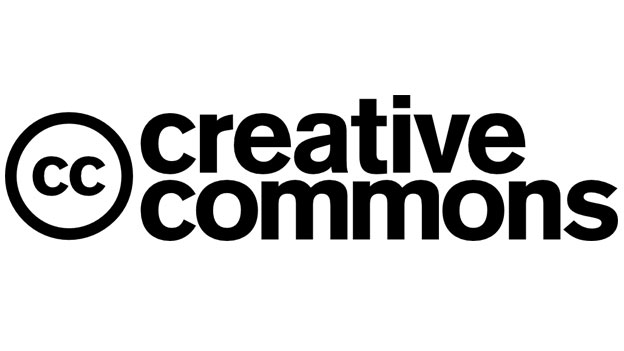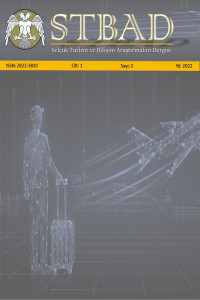Abstract
Gelişen internet teknolojileri sayesinde online alışverişler hem günlük yaşantımızın hem de ekonominin önemli bir parçası haline gelmiştir. Turizm ürünleri ise online olarak satılan ürünler arasında müşteriler tarafından en çok kabul gören ürünlerden biri olmuştur. Turizm ürünlerinin sahip olduğu önceden değerlendirilmesi güç soyut özellikler tüketicilerin belirsizliği azalt-mak adına ürünlerin hem olumlu hem de olumsuz yönlerine dair bilgiler sunan online tüketici yorumlarına daha fazla önem vermesine neden olmuştur. Online ortamlarda giderek artan şikâyet ve olumsuz yorum paylaşımlarının potansiyel müşterilerin satın alma kararları üzerindeki olumsuz etkileri ise TripAdvisor gibi online platformların işletme yönetimler-ine bu tür yorumlara cevap verme imkânı sunmaya başlamasına neden olmuştur. Yapılan çalışmalar yönetim tarafından verilen cevapların teşekkür ve özürden oluşan kalıplaşmış ifadeleri içerdiğini göstermektedir. Bu bağlamda çalışmanın amacı online ortamlarda tüketiciler tarafından paylaşılan yorumlara karşın yönetimin vermiş olduğu cevapların benzerlik düzeylerini metin madenciliği yöntemleri ile incelemektedir. Çalışmada TripAdvisor’da yer alan Antalya bölgesinde faaliyet gösteren ve en iyi değere sahip ilk 10 otel işletmesine ait 1000 adet online yorum için bırakılmış yöne-tim cevabı veri olarak kullanılmıştır. Sonuç olarak yönetim cevapları içerisinde bazı terimlerin sıklıkla kullanılmasına karşın yönetim cevaplarının benzerlik düzeylerinin düşük olduğu tespit edilmiştir.
References
- Amaro, S. and Duarte P. (2015). An integrative model of consumers' intentions to purchase travel online. Tourism Management, 46(2015):64-79.
- Balouchi, M., Aziz, Y., A., Rahman, A., Hasangholipour, T., Khanlari, A., Rahmani A., A. and Raja-Yusof, R., N. (2017). Explaining and predicting online tourists’ behavioral intention in accepting consumer-generated content, Journal of Hospitality and Tourism Technology, 8(2):168-189.
- Bayram, M. (2018). Otel İşletmelerinin Çevrimiçi Tüketici Değerlendirmelerine Yanıt Verip Vermeme Durumlarının Değerlendirilmesi. İşletme Araştırmaları Dergisi, 10(1):816-838.
- Bilgihan, A. (2012). The role of flow in creatıng e-loyalty: the case of online hotel booking websites. Doctor of Philosophy Dissertation, University of Central Florida, Orlando, Florida.
- Brady, M.K. and Cronin, J.J. Jr, (2001), “Some new thoughts on conceptualizing perceived service quality: a hierarchical approach”, Journal of Marketing, Vol. 65 No. 3, pp. 34-49.
- Buhalis, D. and Law, R. (2008). Progress in information technology and tourism management: 20 years on and 10 years after the Internet-The state of eTourism research. Tourism Management, 29(2008):609-623.
- Chen, Y., and Xie, J. (2008). Online consumer review: Word-of-mouth as a new element of marketing communication mix. Management Science, 54(3), 477–491.
- Chevalier, J. A., and Mayzlin, D. (2006). The effect of word of mouth on Sales: Online book reviews. Journal of Marketing Research, 43, 345e354.
- Chu, W., T. and Huang, W., H. (2017). Cultural difference and visual information on hotel rating prediction. World Wide Web, 20(2017):595–619.
- Dirsehan, T. (2016). An Application of Text Mining to Capture and Analyze eWOM: A Pilot Study on Tourism Sector. In Rathore, S. and Panwar, A. (Ed.) Capturing, Analyzing, and Managing Word of Mouth in the Digital Marketplace.(pp. 168-186). IGI Global, USA.
- Ekiz, E., Lattimore, C., D. and Memarzadeh, F. (2012). Air the anger: investigating online complaints on luxury hotels. Journal of Hospitality and Tourism Technology, 3(2): 96-106.
- Ertek, G., Tapucu, D., and Arın, I. (2013). Text Mining with RapidMiner. In: Markus Hofmann, Ralf Klinkenberg (Eds.) RapidMiner: Data Mining Use Cases and Business Analytics Applications. Chapman & Hall/CRC Data Mining and Knowledge Discovery Series. Chapman and Hall/CRC.
- Fazzolari, M. and Petrocchi, M. (2018). A study on online travel reviews through intelligent data analysis. Information Technology & Tourism, 20(1–4): 37–58.
- Filieri, R., Raguseo, E. and Vitari, C. (2018). When are extreme ratings more helpful? Empirical evidence on the moderating effects of review characteristics and product type. Computers in Human Behavior, 88(2018): 134–142.
- Gu, B., and Ye, Q. (2014). First step in social media: Measuring the influence of online management responses on customer satisfaction. Production and Operations Management, 23, 570-582.
- He, W., Tian, X., Tao, R., Zhang, W., Yan, G. and Akula, V. (2017). Application of social media analytics: a case of analyzing online hotel reviews. Online Information Review, 41(7):921-935.
- Hogreve, J., Bilstein, N. and Hoerner, K. (2019). Service recovery on stage: Effects of social media recovery on virtually present others. Journal of Service Research. 22(4), 421-439.
- Hong, H., Xu D., Wang, G. A. and Fan, W. (2017) Understanding the determinants of online review helpfulness: A meta-analytic investigation. Decision Support Systems, 102(2017): 1–11.
- Hu, Y. H. and Chen, K. (2016). Predicting hotel review helpfulness: The impact of review visibility and interaction between hotel stars and review ratings. International Journal of Information Management, 36(2016): 929–944.
- Lee, C. H., and Cranage, D. A. (2014). Toward understanding consumer processing of negative online word-of-mouth communication: The roles of opinion consensus and organizational response strategies. Journal of Hospitality & Tourism Research, 38, 330e360.
- Lee, P. J., Hu, Y. H. and Lu, K. T. (2018). Assessing the helpfulness of online hotel reviews: A classification-based approach. Telematics and Informatics, 35(2018):436–445.
- Lee, Y. L., and Song, S. (2010). An empirical investigation of electronic word-of-mouth: Informational motive and corporate response strategy. Computers in Human Behavior, 26, 1073e1080.
- Li, C., Cui, G., and Peng, L. (2017). The signaling effect of management response in engaging customers: A study of the hotel industry. Tourism Management, 62, 42–53.
- Liang, W. J. (2013). Antecedents of Travellers' eWOM Communication. (Unpublished Doctoral thesis), Faculty of Business, Oxford Brookes University.
- Liu, Z. and Park, S. (2015). What makes a useful online review? Implication for travel product websites. Tourism Management, 47(2015):140-151.
- Liu, Z., Zhang, Z., Law, R. and Zhang, A. (2019). Posting reviews on OTAs: Motives, rewards and effort. Tourism Management, 70(2019):230–237.
- Liu, H., Jayawardhena, C., Dibb, S. and Ranaweera, C. (2019). Examining the trade-off between compensation and promptness in e-wom triggered service recovery: A restorative justice perspective. Tourism Management, 75(2019), 381-392.
- Memarzadeh, F. and Chang, J. (2015). Online consumer complaints about Southeast Asian luxury hotels. Journal of Hospitality Marketing & Management, 24(1), 76–98.
- Nusair, K. and Parsa, H.G. (2011). Introducing flow theory to explain the interactive online shopping experience in a travel context. International Journal of Hospitality Tourism Administration, 121, 1–20.
- Phillips, P., Zigan, K., Silva, M.M.S. and Schegg, R. (2015). The interactive effects of online reviews on the determinants of Swiss hotel performance: a neural network analysis. Tourism Management, 50(2015):130-141.
- Proserpio, D. and Zervas, G. (2017), “Online reputation management: estimating the impact of management responses on consumer reviews”, Marketing Science, Vol. 36 No. 5, pp. 645-665.
- Rose, M., and Blodgett, J. G. (2016). Should hotels respond to negative online reviews? Cornell Hospitality Quarterly, 57(4), 396-410.
- Sparks, B. A., So, K. K. F., and Bradley, G. L. (2016). Responding to negative online reviews: The effects of hotel responses on customer inferences of trust and concern. Tourism Management, 53(1), 74–85.
- Sreejesh, S., Anusree, M. R. and Abhilash, P. (2019). Can online service recovery interventions benignly alter customers’ negative review evaluations? Evidence from the hotel industry. Journal of Hospitality Marketing & Management, 28(6), 711-742.
- Surachartkumtonkun, J., Grace, D. and Ross, M. (2021). Unfair customer reviews: Third-party perceptions and managerial responses. Journal of Business Research, 132(2021), 1-10.
- Tengilimoğlu, E. and Hassan, A. (2020). Applying flow theory to the online booking experience: The role of utilitarian and hedonic features. Journal of Tourismology, 6(1), 1-12.
- TripAdvisor.com. (2017). About tripadvisor.com. https://www.tripadvisor.com/PressCenter-c6-About_Us.html.
- TripAdvisor.com. (2020). https://www.tripadvisor.com/ (17.01.2020).
- UNWTO (World Tourism Organization) (2014). Online Guest Reviews and Hotel Classification Systems An Integrated Approach. [URL: http://europe.unwto.org/publication/on-line-guest-reviews-and-hotelclassification-systems-integrated-approach]
- Wei, W., Miao, L., and Huang, Z. J. (2013). Customer engagement behaviors and hotel responses. International Journal of Hospitality Management, 33, 316–330.
- Xiang, Z., and Gretzel, U. (2010). Role of social media in online travel information search. Tourism Management, 31(2), 179–188.
- Xie, K., L., Zhang, Z., Zhang, Z., Singh, A. and Lee, S. K. (2016). Effects of managerial response on consumer eWOM and hotel performance Evidence from TripAdvisor. International Journal of Contemporary Hospitality Management, 28(9):2013-2034.
- Zhang, Z., Li, H., Meng, F. and Li, Y. (2019). The effect of management response similarity on online hotel booking Field evidence from Expedia. International Journal of Contemporary Hospitality Management, 31(7):2739-2758.
Abstract
Thanks to the developing internet technologies, online shopping has become an important part of our daily life and economy. Tourism products, on the ot-her hand, have become one of the most accepted products by customers. The intangible features of tourism products that have been difficult to evaluate have caused consumers to place more emphasis on online consumer reviews, which provide information on both positive and negative aspects of products to reduce uncertainty. On the other hand, the negative effects of increasing complaints and negative comments sharing on the online customers' purchasing decisions caused online platforms such as TripAdvisor to start offering business management responsibilities to such comments. Studies show that the answers given by the management include stereotypes made up of thanks and apology. In this context, the aim of the study is to examine the similarity levels of the responses given by the management despite the comments shared by the consumers in the online environment by text mining methods. In the study, the management responses for 1000 online reviews of the top 10 hotel businesses operating in the Antalya region on TripAdvisor, were used as data. As a result, although some terms are frequently used in the management responses, the similarity levels of the management responses are found to be low.
References
- Amaro, S. and Duarte P. (2015). An integrative model of consumers' intentions to purchase travel online. Tourism Management, 46(2015):64-79.
- Balouchi, M., Aziz, Y., A., Rahman, A., Hasangholipour, T., Khanlari, A., Rahmani A., A. and Raja-Yusof, R., N. (2017). Explaining and predicting online tourists’ behavioral intention in accepting consumer-generated content, Journal of Hospitality and Tourism Technology, 8(2):168-189.
- Bayram, M. (2018). Otel İşletmelerinin Çevrimiçi Tüketici Değerlendirmelerine Yanıt Verip Vermeme Durumlarının Değerlendirilmesi. İşletme Araştırmaları Dergisi, 10(1):816-838.
- Bilgihan, A. (2012). The role of flow in creatıng e-loyalty: the case of online hotel booking websites. Doctor of Philosophy Dissertation, University of Central Florida, Orlando, Florida.
- Brady, M.K. and Cronin, J.J. Jr, (2001), “Some new thoughts on conceptualizing perceived service quality: a hierarchical approach”, Journal of Marketing, Vol. 65 No. 3, pp. 34-49.
- Buhalis, D. and Law, R. (2008). Progress in information technology and tourism management: 20 years on and 10 years after the Internet-The state of eTourism research. Tourism Management, 29(2008):609-623.
- Chen, Y., and Xie, J. (2008). Online consumer review: Word-of-mouth as a new element of marketing communication mix. Management Science, 54(3), 477–491.
- Chevalier, J. A., and Mayzlin, D. (2006). The effect of word of mouth on Sales: Online book reviews. Journal of Marketing Research, 43, 345e354.
- Chu, W., T. and Huang, W., H. (2017). Cultural difference and visual information on hotel rating prediction. World Wide Web, 20(2017):595–619.
- Dirsehan, T. (2016). An Application of Text Mining to Capture and Analyze eWOM: A Pilot Study on Tourism Sector. In Rathore, S. and Panwar, A. (Ed.) Capturing, Analyzing, and Managing Word of Mouth in the Digital Marketplace.(pp. 168-186). IGI Global, USA.
- Ekiz, E., Lattimore, C., D. and Memarzadeh, F. (2012). Air the anger: investigating online complaints on luxury hotels. Journal of Hospitality and Tourism Technology, 3(2): 96-106.
- Ertek, G., Tapucu, D., and Arın, I. (2013). Text Mining with RapidMiner. In: Markus Hofmann, Ralf Klinkenberg (Eds.) RapidMiner: Data Mining Use Cases and Business Analytics Applications. Chapman & Hall/CRC Data Mining and Knowledge Discovery Series. Chapman and Hall/CRC.
- Fazzolari, M. and Petrocchi, M. (2018). A study on online travel reviews through intelligent data analysis. Information Technology & Tourism, 20(1–4): 37–58.
- Filieri, R., Raguseo, E. and Vitari, C. (2018). When are extreme ratings more helpful? Empirical evidence on the moderating effects of review characteristics and product type. Computers in Human Behavior, 88(2018): 134–142.
- Gu, B., and Ye, Q. (2014). First step in social media: Measuring the influence of online management responses on customer satisfaction. Production and Operations Management, 23, 570-582.
- He, W., Tian, X., Tao, R., Zhang, W., Yan, G. and Akula, V. (2017). Application of social media analytics: a case of analyzing online hotel reviews. Online Information Review, 41(7):921-935.
- Hogreve, J., Bilstein, N. and Hoerner, K. (2019). Service recovery on stage: Effects of social media recovery on virtually present others. Journal of Service Research. 22(4), 421-439.
- Hong, H., Xu D., Wang, G. A. and Fan, W. (2017) Understanding the determinants of online review helpfulness: A meta-analytic investigation. Decision Support Systems, 102(2017): 1–11.
- Hu, Y. H. and Chen, K. (2016). Predicting hotel review helpfulness: The impact of review visibility and interaction between hotel stars and review ratings. International Journal of Information Management, 36(2016): 929–944.
- Lee, C. H., and Cranage, D. A. (2014). Toward understanding consumer processing of negative online word-of-mouth communication: The roles of opinion consensus and organizational response strategies. Journal of Hospitality & Tourism Research, 38, 330e360.
- Lee, P. J., Hu, Y. H. and Lu, K. T. (2018). Assessing the helpfulness of online hotel reviews: A classification-based approach. Telematics and Informatics, 35(2018):436–445.
- Lee, Y. L., and Song, S. (2010). An empirical investigation of electronic word-of-mouth: Informational motive and corporate response strategy. Computers in Human Behavior, 26, 1073e1080.
- Li, C., Cui, G., and Peng, L. (2017). The signaling effect of management response in engaging customers: A study of the hotel industry. Tourism Management, 62, 42–53.
- Liang, W. J. (2013). Antecedents of Travellers' eWOM Communication. (Unpublished Doctoral thesis), Faculty of Business, Oxford Brookes University.
- Liu, Z. and Park, S. (2015). What makes a useful online review? Implication for travel product websites. Tourism Management, 47(2015):140-151.
- Liu, Z., Zhang, Z., Law, R. and Zhang, A. (2019). Posting reviews on OTAs: Motives, rewards and effort. Tourism Management, 70(2019):230–237.
- Liu, H., Jayawardhena, C., Dibb, S. and Ranaweera, C. (2019). Examining the trade-off between compensation and promptness in e-wom triggered service recovery: A restorative justice perspective. Tourism Management, 75(2019), 381-392.
- Memarzadeh, F. and Chang, J. (2015). Online consumer complaints about Southeast Asian luxury hotels. Journal of Hospitality Marketing & Management, 24(1), 76–98.
- Nusair, K. and Parsa, H.G. (2011). Introducing flow theory to explain the interactive online shopping experience in a travel context. International Journal of Hospitality Tourism Administration, 121, 1–20.
- Phillips, P., Zigan, K., Silva, M.M.S. and Schegg, R. (2015). The interactive effects of online reviews on the determinants of Swiss hotel performance: a neural network analysis. Tourism Management, 50(2015):130-141.
- Proserpio, D. and Zervas, G. (2017), “Online reputation management: estimating the impact of management responses on consumer reviews”, Marketing Science, Vol. 36 No. 5, pp. 645-665.
- Rose, M., and Blodgett, J. G. (2016). Should hotels respond to negative online reviews? Cornell Hospitality Quarterly, 57(4), 396-410.
- Sparks, B. A., So, K. K. F., and Bradley, G. L. (2016). Responding to negative online reviews: The effects of hotel responses on customer inferences of trust and concern. Tourism Management, 53(1), 74–85.
- Sreejesh, S., Anusree, M. R. and Abhilash, P. (2019). Can online service recovery interventions benignly alter customers’ negative review evaluations? Evidence from the hotel industry. Journal of Hospitality Marketing & Management, 28(6), 711-742.
- Surachartkumtonkun, J., Grace, D. and Ross, M. (2021). Unfair customer reviews: Third-party perceptions and managerial responses. Journal of Business Research, 132(2021), 1-10.
- Tengilimoğlu, E. and Hassan, A. (2020). Applying flow theory to the online booking experience: The role of utilitarian and hedonic features. Journal of Tourismology, 6(1), 1-12.
- TripAdvisor.com. (2017). About tripadvisor.com. https://www.tripadvisor.com/PressCenter-c6-About_Us.html.
- TripAdvisor.com. (2020). https://www.tripadvisor.com/ (17.01.2020).
- UNWTO (World Tourism Organization) (2014). Online Guest Reviews and Hotel Classification Systems An Integrated Approach. [URL: http://europe.unwto.org/publication/on-line-guest-reviews-and-hotelclassification-systems-integrated-approach]
- Wei, W., Miao, L., and Huang, Z. J. (2013). Customer engagement behaviors and hotel responses. International Journal of Hospitality Management, 33, 316–330.
- Xiang, Z., and Gretzel, U. (2010). Role of social media in online travel information search. Tourism Management, 31(2), 179–188.
- Xie, K., L., Zhang, Z., Zhang, Z., Singh, A. and Lee, S. K. (2016). Effects of managerial response on consumer eWOM and hotel performance Evidence from TripAdvisor. International Journal of Contemporary Hospitality Management, 28(9):2013-2034.
- Zhang, Z., Li, H., Meng, F. and Li, Y. (2019). The effect of management response similarity on online hotel booking Field evidence from Expedia. International Journal of Contemporary Hospitality Management, 31(7):2739-2758.
Details
| Primary Language | Turkish |
|---|---|
| Subjects | Tourism (Other) |
| Journal Section | Research Articles |
| Authors | |
| Early Pub Date | August 24, 2022 |
| Publication Date | October 31, 2022 |
| Submission Date | September 23, 2022 |
| Published in Issue | Year 2022 Volume: 1 Issue: 2 |
Selcuk Tourism and Information Research Journal is licensed under a Creative Commons Attribution-NonCommercial 4.0 International License (CC BY NC).
![]()








